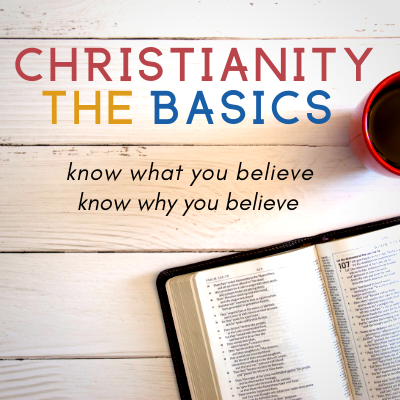SERMON SUMMARY
The Apostles’ Creed speaks to the importance of the church. One of the biggest problems we have in the world today is an inability for people to get along—to love one another, to forgive one another, to live in unity, and Ephesians 2 shows that God gives the church the resources and power it needs to get along with people who are deeply different from one another. The gospel creates [1] supernatural community through [2] spiritual heart surgery that works itself out in [3] a radical new identity.
[1] Supernatural community. Ephesians 2:19-21 gives three metaphors that describe the church: [a] citizenship in heaven, [b] membership in God’s household, and [c] joining together as the holy temple for God. Notice how these three metaphors ascend—each one is more relationally intense than the previous. A king lives in the same country with his citizens, a father lives in the same house with his children, but in the temple imagery, God actually indwells you. Christians are like the blocks in a building—cemented together. I once walked into Starbucks and noticed a big, muscular guy with long hair. His body was tattooed and ears were pierced. It looked as if we had nothing in common—but he was reading the Bible. “Good book” I said. “The best”, he replied. We had this instant connection. He invited me to join him and we had this wonderful conversation about our Savior. You would have thought that we had been friends for years! It was a beautiful thing—God put us together! The gospel unites very different people.
Through Christ we have access to God, but we have to do more than just show up at church two or three times a month for inspiration. Does your relationship with the church mirror these three metaphors? As family, we are to “encourage one another day after day…so that none of us will be hardened by the deceitfulness of sin” (Hebrews 3:13). Sin is deceitful, but if we are living in close relationships in Christ—and this cannot be done on social media!—we can speak truth to one another.
[2] Spiritual heart surgery creates a bond between people who are radically different from one another. Enmity (hostility) towards people who are different from us has to be cut out of the human heart (v. 14- 16). God did this for Jews and Gentiles in the first century (v. 11–13). Christ destroyed the “barrier of the dividing wall”, which is the Law of Moses (v. 15)—yet that law was “holy”, “righteous”, “good” and “spiritual” (Romans 7:12-14). God gave the Law so that they could be a light to the Gentiles, but instead the Jews began use the Law to judge the Gentiles. Rather than reaching out to the Gentiles they despised them, and in return, the Gentiles despised the arrogance, pride and judgment of the Jews. The Law became the dividing wall of hostility. The things in which we take pride end up dividing us. For the Jews, it was the Law of Moses; for us it could be our culture. But instead of just saying, “OK, we’re just different…” we think, “No—we’re better!” Whatever we take pride in becomes a dividing wall of hostility; we despise those who are different from us.
Sinners—both the “moral” sort and the “immoral” sort—need God’s grace (v. 17). God reconciles us to himself and to each other through the preaching of the gospel of peace. The gospel tells us that we have no right to feel superior towards anyone; all are sinners in need of God’s grace. The gospel not only humbles us, it affirms us “through the cross” (v. 16). On the cross, God treated Jesus as we deserve so that when we believe in Jesus, God can treat us as if we are as virtuous, moral, honorable and righteous as Jesus (2 Corinthians 5:21).
[3] Radical new identity is how God works out this radical new community. The gospel gives us a radical new identity that’s received, not achieved, an identity that does not depend on our own performance, so that we cannot look down on others. Our differences still exist—but they have been demoted. Jesus is our identity! Jesus is not ashamed to call any of us “brethren” (Hebrews 2:11). When we think about what Jesus has done for us on the cross it destroys any hostility we’ve felt toward others in the past. This radical new identity enables us to learn to love and appreciate others. In the church we gain perspective because we come from a wide range of cultures. This radical new identity calls us to be peacemakers and agents of reconciliation.
APPLICATION / CHALLENGE
- Choose to live out of your radical new identity as a Christian. All other identities must be demoted.
- Find a Christian brother or sister who is deeply different from you racially, culturally, nationally or economically, and determine to really get to know them.
TAKE ONE STEP
Each week, write down one doable concrete step of obedience, small or large, that you will put into practice this week. (James 1:22: “But prove yourselves doers of the word, and not merely hearers who delude themselves.”)


